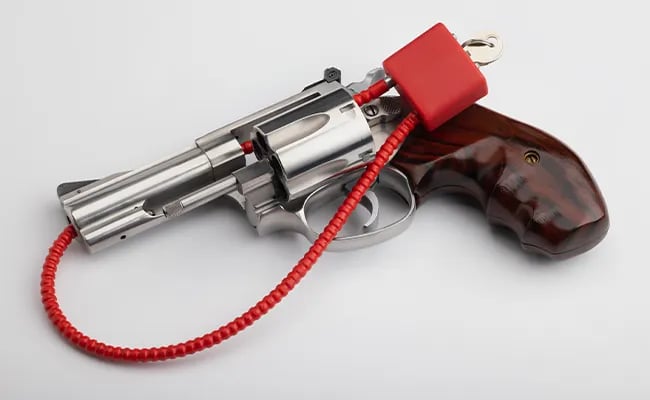Last Will & Testament
Inheriting a firearm
Inheriting a firearm can be a meaningful and sentimental experience, but it also comes with important responsibilities and potential pitfalls. Whether it's a family heirloom or a recent acquisition, inheriting a firearm requires an understanding of the legal requirements and safety measures to ensure that the process goes smoothly.

Legal Requirements
Inheriting a firearm is subject to both federal and state laws, and compliance with these laws is essential. The transfer of a firearm to a new owner, including through inheritance, must be done in accordance with the Gun Control Act of 1968 (GCA) and other relevant federal and state laws. Here are some key requirements to keep in mind:
Ownership Transfer: Before you can take possession of the firearm, you must have legal ownership of it. If the deceased person left a will, it should specify who inherits the firearm. If there is no will, state law will generally determine who inherits the firearm. In either case, the transfer must comply with state and federal law.
Background Check: If the firearm is being transferred to you by a licensed dealer, you will need to undergo a background check, which includes a criminal history check, to ensure you are eligible to own a firearm. Some states may also require background checks for private sales or transfers. If you know ahead of time that you may be inheriting a firearm, take the necessary firearms safety course and get your federal Firearms ID.
Registration: Most states require that firearms be registered, either with the state or with the federal government. You will need to make sure that the firearm is properly registered in your name, which may require submitting forms and paying fees.
Transportation: If you need to transport the firearm across state lines, you must comply with federal law, which requires that firearms be transported unloaded and in a locked container. Some states have additional requirements for transporting firearms within the state, such as keeping them in a locked container and in the trunk of a vehicle.
Safety Measures
Inheriting a firearm also comes with the responsibility of ensuring that it is handled safely and kept secure. Here are some important safety measures to keep in mind:
Storage: Firearms should be stored in a secure location that is inaccessible to children or unauthorized individuals. A gun safe is the most secure option for storing firearms, but a locked cabinet or gun case can also be effective.
Handling: If you plan to handle the firearm, make sure you are familiar with how to use it safely. If you are not familiar with firearms, consider taking a safety course or seeking guidance from a knowledgeable friend or family member.
Maintenance: Firearms require regular maintenance to ensure they are functioning properly. Make sure to clean and oil the firearm regularly, and inspect it for any signs of damage or wear.
Pitfalls to Avoid
Inheriting a firearm can also come with potential pitfalls, which can be avoided with careful planning and consideration. Here are some common pitfalls to avoid:
Inheriting an Illegal Firearm: Some firearms are illegal to own or possess, such as machine guns or short-barreled shotguns. If you inherit an illegal firearm, you could be subject to criminal charges. Make sure you know what kind of firearm you are inheriting, and consult an attorney if you have any doubts about its legality.
Selling the Firearm: If you plan to sell the firearm, make sure you do so in accordance with state and federal law. You may need to have the firearm transferred through a licensed dealer, and you may also need to complete a background check.
Failing to Properly Store the Firearm: If you do not store the firearm securely, it could be accessed by unauthorized individuals, including children, which could lead to serious injury or death. Make sure you take the necessary precautions to keep the firearm secure.
